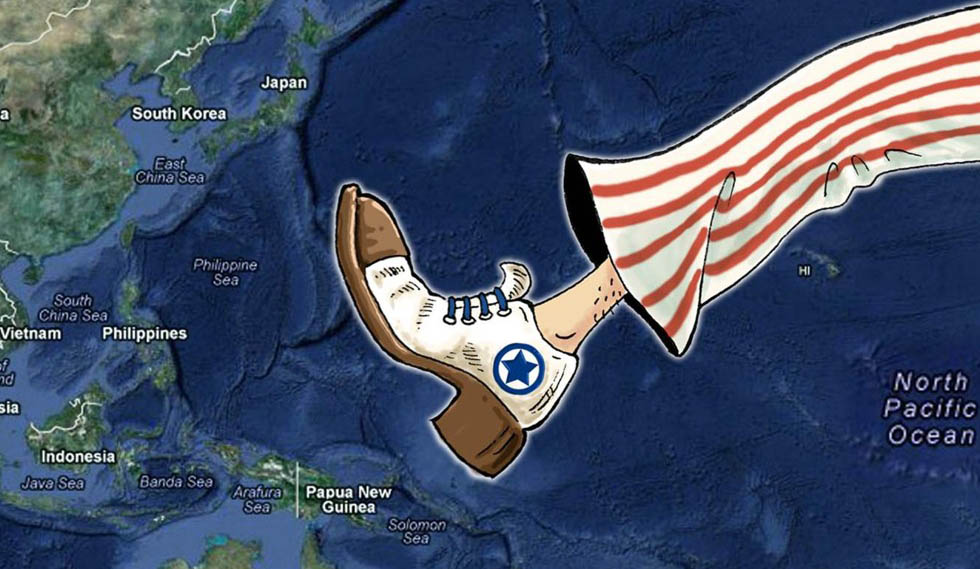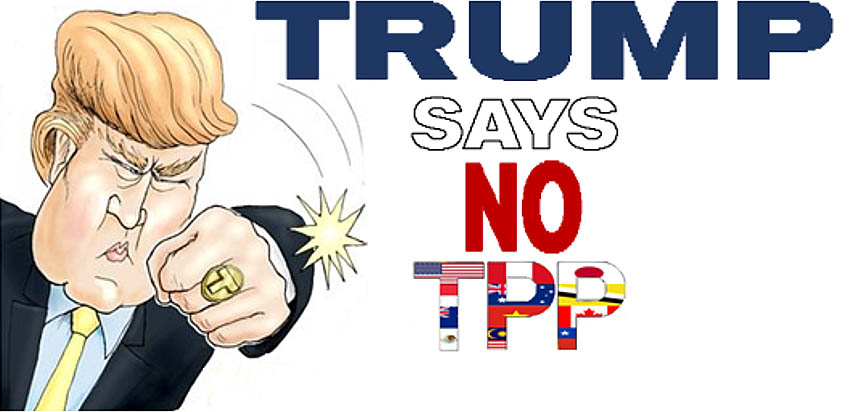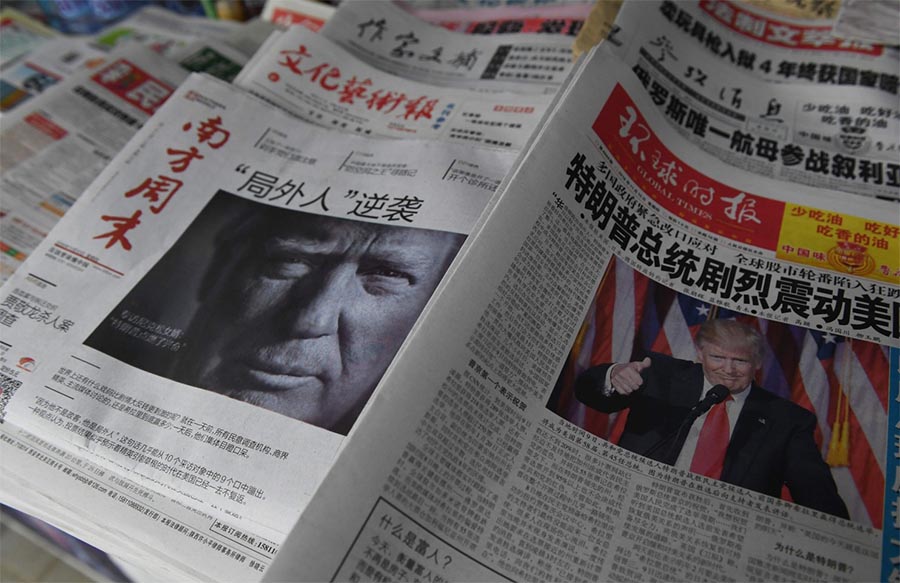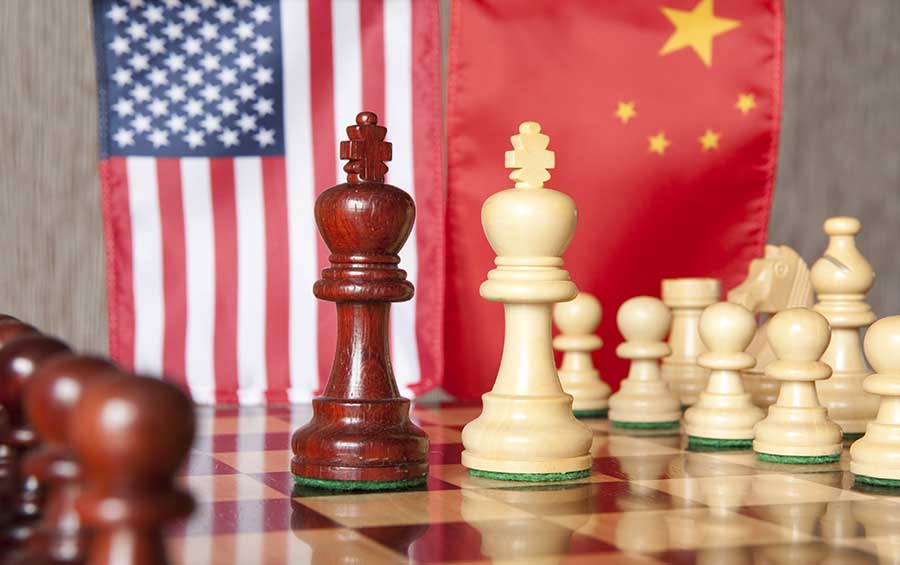
Beth Smits, PhD candidate, Paul H. Nitze School of Advanced International Studies (SAIS), Johns Hopkins University
Dec 13, 2016
As the president-elect makes bold statements and takes symbolic actions relevant to US-Sino relations, perhaps a bit of folklore suggests how to think about wise policy actions.

Zhao Gancheng, Senior Fellow, Shanghai Institutes for Int'l Studies
Nov 25, 2016
As Chinese leaders reiterate, the Pacific is wide enough to support the development needs of both China and the U.S. China’s huge development has never relied on challenging American leadership in the international system, and the Chinese achievements have contributed to global economy and prosperity. Eager to work with the U.S. for peace and development, China sees no reason for the American game in China’s periphery.
Sourabh Gupta, Senior Fellow, Institute for China-America Studies
Nov 30, 2016
Donald Trump’s unabashed pandering to an aggrieved white voter base as well as the long-standing consistency of his (much less-noticed) anti-trade convictions bear implications for Washington’s China policy. As the disillusioned, blue-collar nativist element within slowly defects from a party that remains bound and determined to cater to the interests of its 1% backers, including under the incoming Trump Administration, U.S. politics will enter a period of flux.

Hugh Stephens, Distinguished Fellow, Asia Pacific Foundation of Canada
Nov 18, 2016
With the election of Donald Trump to the White House, the Obama Administration has finally accepted the inevitable and has announced that it will cease efforts to push the Trans Pacific Partnership (TPP) forward in the waning days of the Lame Duck session. Over the long term, Washington will need to re-assert its trade presence in the Asia-Pacific region. The supply chains are too interwoven and interdependent for the U.S. to go at it alone, despite the isolationist rhetoric emanating from the U.S. election.
Chen Jimin, Guest Researcher, Center for Peace and Development Studies, China Association for International Friendly Contact
Nov 16, 2016
Compared with diplomatic issues, the new administration is facing more challenges in domestic affairs, which is also more critical for Trump’s re-election four years from now. For a Trump administration, with the edge of the Republican-controlled Congress, it is urgent to promote domestic policies and reforms. The alliance system, therefore, is not among the top priorities or issues, and its institutional nature insulates it from the whims of a single individual.
Wu Sike, Member on Foreign Affairs Committee, CPPCC
Nov 15, 2016
The fine momentum of deepening China-US cooperation in various areas will inevitably extend into the upcoming new US presidency. Donald Trump and his team, who have won the election under the banner of “Make America Great Again”, should see that joining hands with China in the Asia-Pacific will result in a win-win scenario for both counties.

Shao Yuqun, Director, Institute for Taiwan, HK and Macau Studies, Shanghai Institutes for International Studies
Nov 14, 2016
It remains to be seen whether the Trump-led US will be more self-confident, or more suspicious; continue embracing (though no longer enthusiastically) globalization, or nervously shrink back. The notion that businessman Trump will be more interested in cutting deals, and that his foreign policy will forsake persistent American values and criteria, is overly naive.
Wu Sike, Member on Foreign Affairs Committee, CPPCC
Nov 04, 2016
As tensions escalate, the players will eventually go against US national interests, with potential for conflict and instability. The only viable path to peace and security is deepening strategic cooperation and pursuing common security across the region.

Yuan Peng, Vice President, Chinese Institute of Contemporary International Relations
Oct 11, 2016
Evolving circumstances mean that new approaches are essential to maintain the momentum that ties between the two countries have enjoyed for 30 years. If Beijing and Washington can chart a new course forward and institute workable frameworks, then the relationship may well be on track to scale new heights.
Wang Hanling, Director of National Center for Ocean Affairs and the Law of the Sea
Peng Sixiang, Master's Candidate at Department of Law, CASS Graduate School
Oct 03, 2016
China’s alleged militarization of the South China Sea isn’t supported by the facts, and the US definition of ‘militarization’ defies both common sense and international practice.
Back to Top

- China-US Focus builds trust and understanding between the U.S. and China through open dialogue among thought leaders.
- Our Offerings
- Topics
- Videos
- Podcasts
- Columnists
- Research Reports
- Focus Digest
- Stay Connected
-
Thanks for signing up!
- Get the latest stories from China-US Focus weekly.